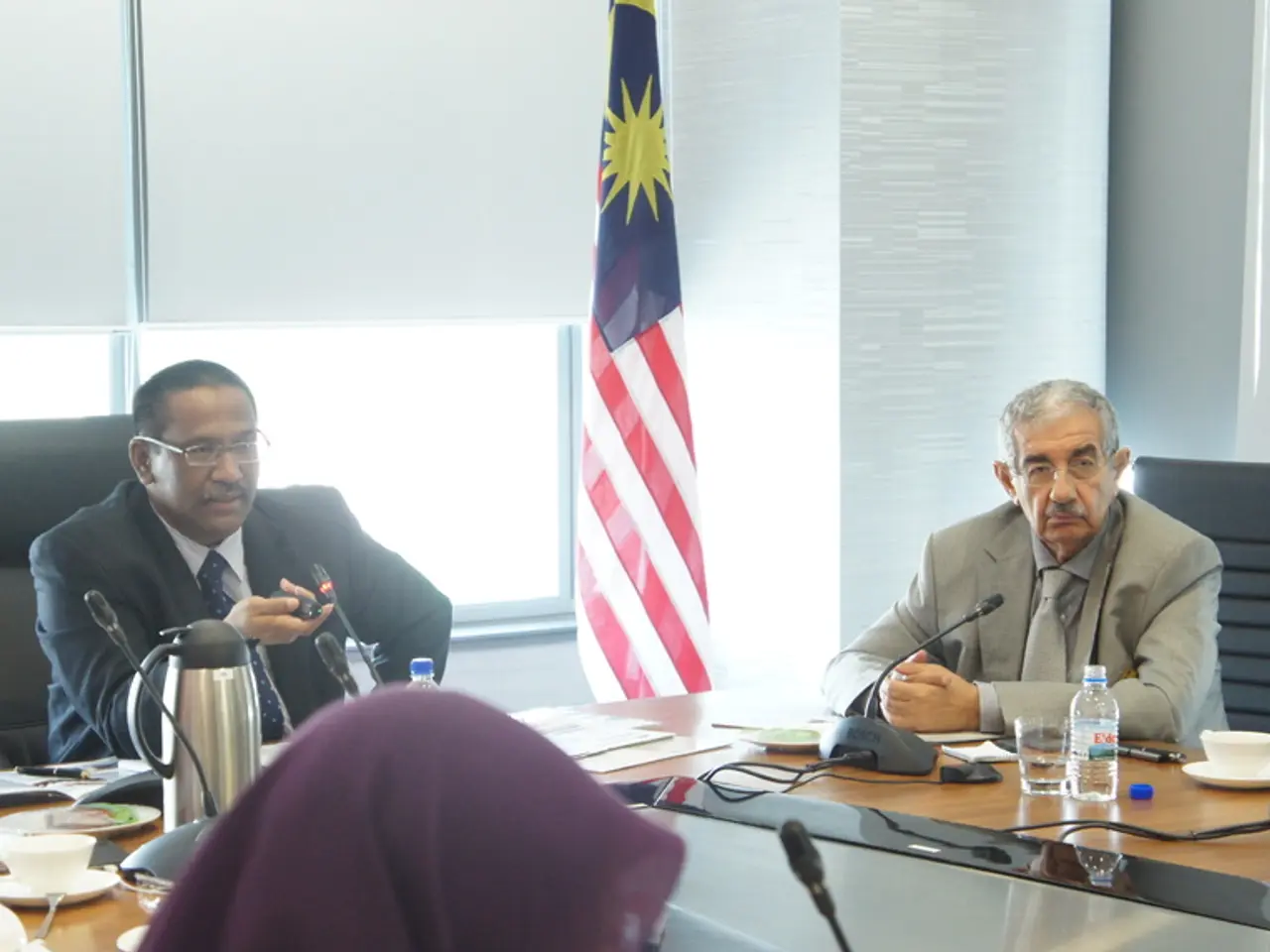Multitudes of Afghans granted UK asylum following massive data leak incident
The UK's covert Afghan Relocation Program, aimed at bringing individuals who worked with British forces to safety, has recently come to light following a High Court ruling that lifted a secrecy order. The program, known as the Afghan Response Route, was initially kept under wraps due to concerns over the potential danger it could pose to those awaiting relocation.
The existence and scale of the program were only made public after the court ruling, with reports suggesting that approximately 4,500 Afghans have been brought to the UK under this initiative. The Afghan Response Route was set up in April 2024 to help those "judged to be at the highest risk of reprisals by the Taliban."
The program was already in full swing when the Labour government came to power in July 2024, with Defence Minister John Healey being briefed on the scheme in December 2023. However, Healey was asked by the Conservative government to impose a "super-injunction" banning any mention of it in parliament or by the press.
The secrecy surrounding the program has renewed debate about the UK's responsibility to protect Afghans who assisted its mission. The data breach that led to the leaking of a spreadsheet containing the names and details of nearly 19,000 Afghans occurred in February 2022. The U.K. defence ministry was fined £350,000 by a data watchdog for disclosing personal information of 265 Afghans seeking to flee Taliban fighters in the chaotic fall of Kabul two years earlier.
Conservative party defence spokesman James Cartlidge has since apologized for the leak that happened under the previous Tory government. Defence Minister John Healey unveiled the scheme to parliament after the court ruling, stating that the scheme was put in place to help those at the highest risk due to their work with the UK.
The Afghan Response Route has now been closed, with the government focusing on streamlining operations through the consolidation of various Afghan resettlement efforts into the Afghan Resettlement Programme (ARP). The government continues to process and relocate individuals whose cases were accepted before the closure date, with the focus remaining on Afghans at risk due to their work with the UK, both those in Afghanistan and the region.
However, no specific figures on the total cost to the UK government of relocating Afghans under these schemes have been disclosed. Official government publications focus on integration support and funding instructions for local authorities but do not disclose overall program expenditures. The government has issued detailed funding instructions for local authorities regarding housing, language training, and support services for Afghan arrivals, but these documents do not aggregate the total national expenditure.
Prime Minister Keir Starmer has vowed to cut the number of migrants arriving in Britain, raising questions about the future of such programs and the UK's commitment to protecting those who have worked with British forces. As the Afghan Response Route comes to a close, the focus shifts to ensuring the safety and well-being of those who have already been relocated and finding new ways to support Afghans in need.
- The Afghan Response Route, a program established in April 2024 under policy-and-legislation, has been instrumental in bringing approximately 4,500 Afghans to the UK, offering protection to those at the highest risk of reprisals by the Taliban.
- The ongoing debate about the UK's responsibility to protect Afghans who assisted its mission has been exacerbated by the secrecy surrounding programs like the Afghan Response Route, which was initially hidden from general-news due to political concerns.








